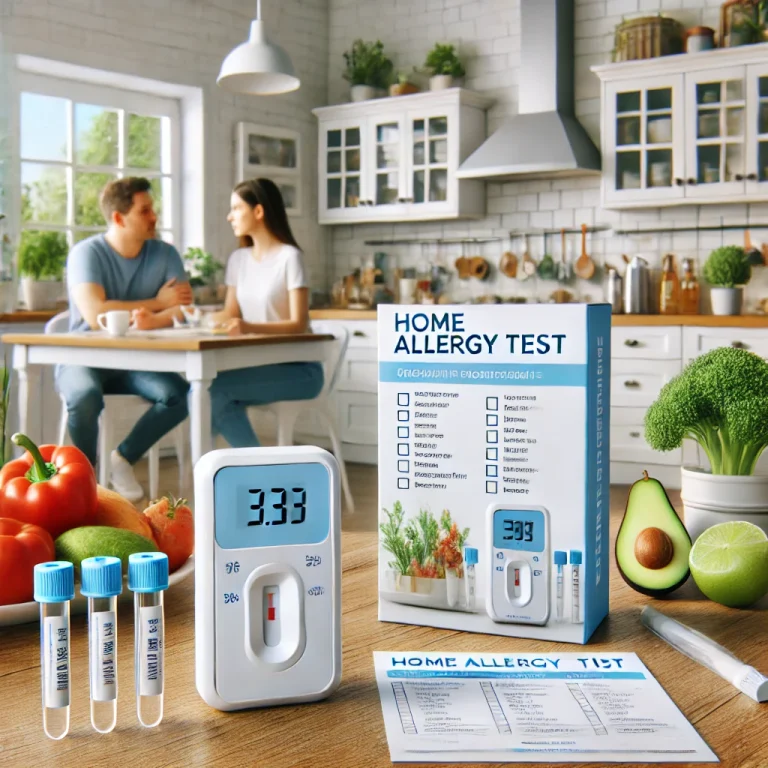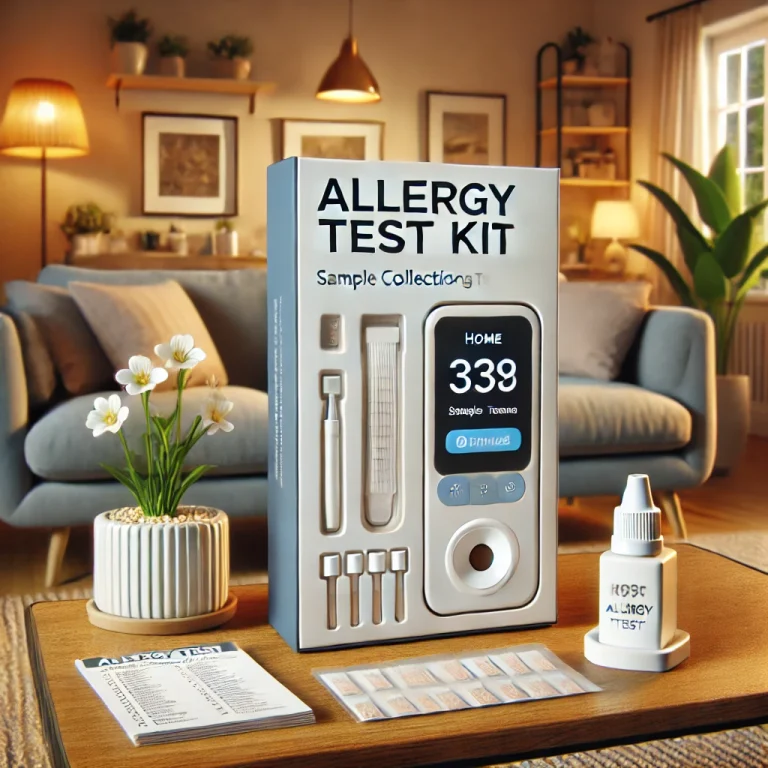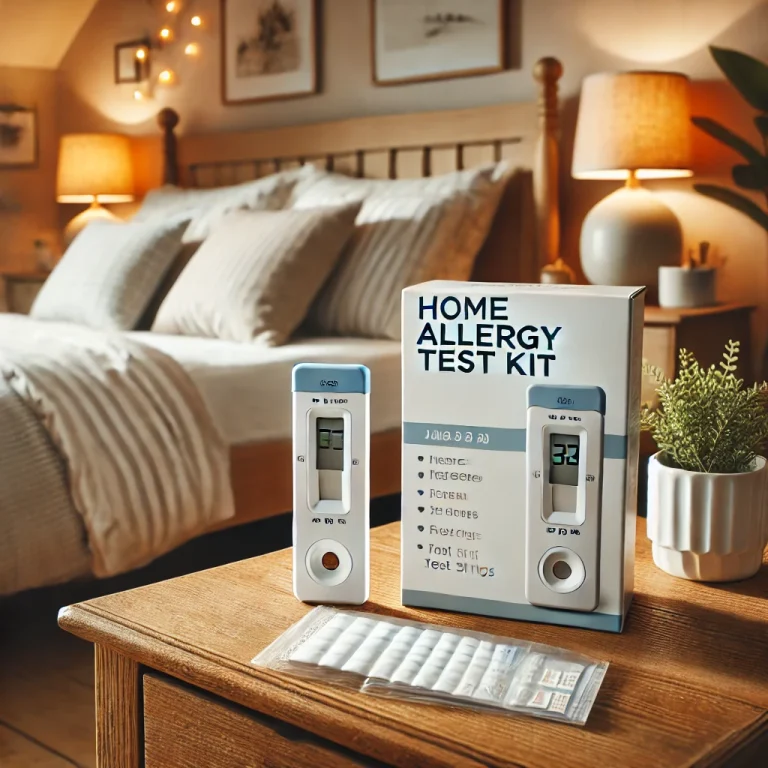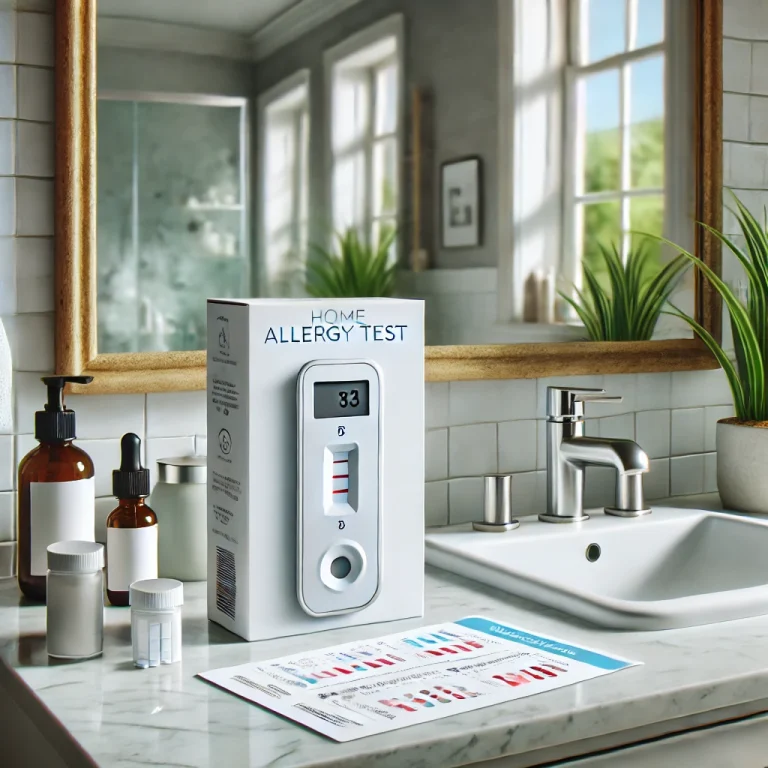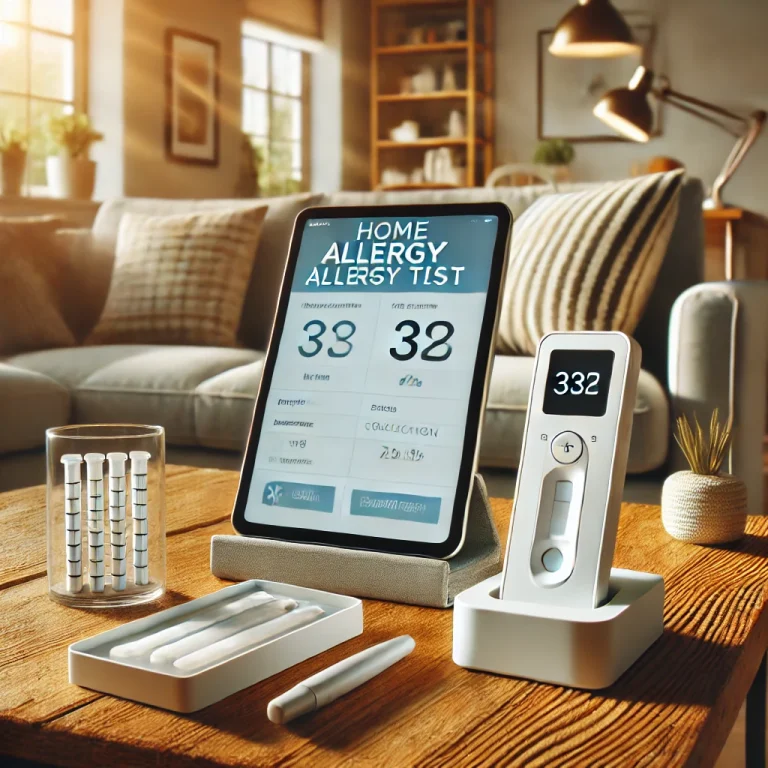Self-Administered Food Allergy Tests – Pros and Cons
In today’s fast-paced world, individuals are increasingly turning to self-administered tests for health diagnostics, including food allergy tests. These at-home kits promise a convenient and quick solution to identify potential food sensitivities or allergies without the need to visit a healthcare provider. But how reliable are these tests, and should they be your go-to choice for food allergy detection?
In this post, we’ll explore the pros and cons of self-administered food allergy tests, helping you decide whether they are the right option for you.
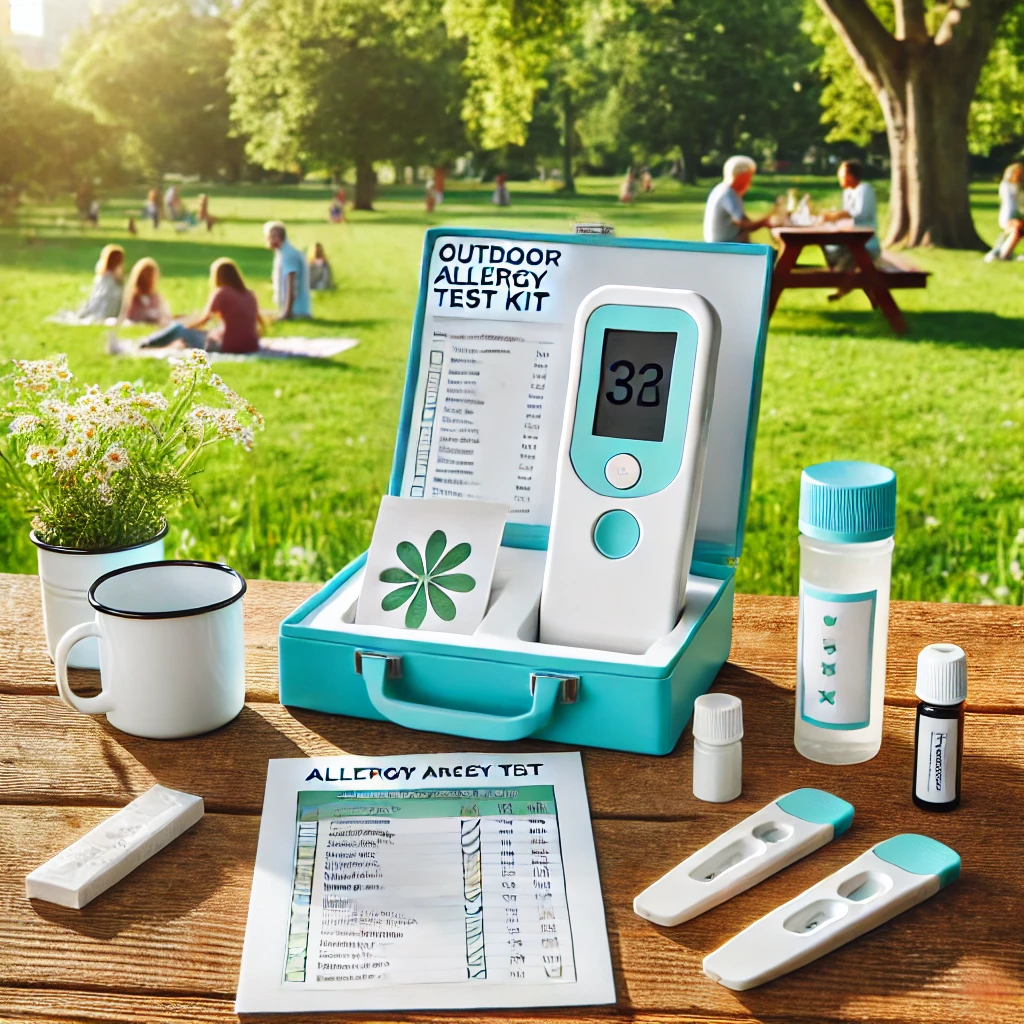
What Are Self-Administered Food Allergy Tests?
Self-administered food allergy tests are home testing kits designed to help individuals detect potential food sensitivities or allergic reactions. Typically, these tests involve a small sample of blood or saliva, which is either analyzed by the user at home or sent to a lab for results. The results typically aim to identify immune responses (like IgG or IgE antibodies) to specific foods.
While they offer a level of convenience, self-testing for food allergies comes with its own set of advantages and disadvantages.
Pros of Self-Administered Food Allergy Tests
1. Convenience and Comfort
One of the biggest advantages of self-administered food allergy tests is convenience. These tests can be ordered online and conducted in the comfort of your own home. There is no need to book an appointment with an allergist, wait for test results from a clinic, or even leave the house. For individuals with busy schedules or those who live in areas with limited access to healthcare providers, this convenience can be incredibly appealing.
2. Quick Results
Most self-administered food allergy tests provide results within a matter of days or weeks. This is significantly faster than waiting for a referral, attending multiple appointments, and undergoing traditional allergy testing in a medical setting. For those eager to get answers and adjust their diets, this speed can be a key benefit.
3. Cost-Effective
Traditional allergy testing can be costly, especially without comprehensive health insurance. Self-administered food allergy tests are often more affordable than clinical testing. While prices vary, many kits range from $100 to $200, which can be appealing for individuals seeking a lower-cost alternative to clinical evaluations.
4. Initial Insight into Food Sensitivities
Self-administered tests can provide some insights into food sensitivities and intolerances, which might help people make dietary adjustments. For those experiencing digestive issues, skin problems, or other unexplained symptoms, these tests can provide a starting point for further investigation.
Cons of Self-Administered Food Allergy Tests
1. Lack of Accuracy
One of the major drawbacks of self-administered food allergy tests is the potential for inaccurate or misleading results. Many of these tests measure levels of immunoglobulin G (IgG) antibodies, which can indicate exposure to certain foods but don’t necessarily signify an allergic reaction. In fact, IgG antibodies may simply reflect normal food consumption rather than intolerance or allergy. As a result, these tests may suggest allergies where none exist, leading to unnecessary dietary restrictions.
2. False Positives or Negatives
A related concern is the potential for false positives or negatives. False positives occur when the test suggests an allergy that doesn’t exist, causing users to avoid certain foods unnecessarily. On the other hand, a false negative could miss a legitimate food allergy, potentially putting the user at risk if they continue consuming the problematic food.
3. Lack of Medical Guidance
Self-administered tests lack the oversight of a healthcare professional, meaning there is no expert interpretation of the results. Understanding allergies involves more than just identifying the presence of antibodies. A licensed allergist can conduct thorough evaluations, including detailed patient history, skin tests, and challenge tests, which provide more reliable and holistic results. Without this context, self-administered tests may lead to confusion or mismanagement of dietary choices.
4. Potential for Unnecessary Dietary Restrictions
Because self-administered tests can produce inaccurate results, there’s a risk of users eliminating foods unnecessarily. Restricting certain foods without medical guidance can result in nutritional imbalances, especially if major food groups like dairy, wheat, or soy are eliminated. For individuals with already restrictive diets, this can exacerbate health issues rather than solve them.
5. Not a Substitute for Professional Diagnosis
It’s important to note that food allergy tests, especially self-administered ones, should not replace professional diagnosis. Food allergies can be serious, even life-threatening, and only a medical professional can provide an accurate diagnosis and treatment plan. An allergist can also differentiate between food allergies and intolerances, which often present similar symptoms but require different management strategies.
Should You Use a Self-Administered Food Allergy Test?
While self-administered food allergy tests may offer some initial insights, they are not without their risks and limitations. If you’re experiencing symptoms you suspect are related to food allergies, the safest and most effective approach is to consult with a healthcare provider. An allergist can provide a comprehensive assessment, ensuring that you receive accurate results and appropriate guidance.
However, if you’re looking for a starting point to explore potential food sensitivities or intolerances and are aware of the limitations, a self-administered test can be a convenient first step. Just remember to follow up with a medical professional if the results raise concerns.
Conclusion
Self-administered food allergy tests offer convenience, speed, and cost savings, but they are far from foolproof. Their tendency to produce inaccurate results, lack of medical oversight, and potential to cause unnecessary dietary restrictions make them less reliable than professional medical evaluations. If you’re considering a self-administered test, use it as an exploratory tool, but rely on professional advice for a final diagnosis and management plan.
In the end, food allergies are complex, and addressing them requires the right combination of testing, medical expertise, and careful dietary management.
